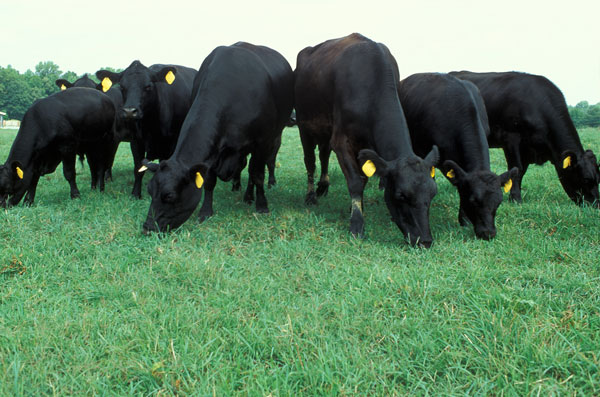
Supporters of USDA's County-of-Origin Labeling (COOL) program are celebrating after attorneys for a multinational meat packing industry group filed papers last week in a U.S. District Court in Washington that effectively ends a lawsuit against USDA over meat labeling that requires designating where an animal was born, raised, and slaughtered.
Opponents of the COOL program included meatpackers in Canada and Mexico who claimed USDA's labeling requirement imposed an unfair marketing advantage to the U.S. meatpacking industry and the producers who supply them and further increased the cost of foreign exports of beef, pork and poultry.
The suit was filed in July 2013 by domestic and international meatpackers and trade groups who argued before the World Trade Organization (WTO) to gain support for their fight against the labeling requirements. Since then, and for the second time, WTO ruled in favor of Canada and Mexico in their ongoing campaign to overcome COOL labeling rules. A special WTO panel called COOL requirements "unfairly discriminate against meat imports [which] gives the advantage to domestic meat products."
But the WTO compliance panel also found that the labels do provide U.S. consumers with information on the origin of their food, countering Canada and Mexico’s assertion that the labels do not serve their intended purpose.
For the latest on southwest agriculture, please check out Southwest Farm Press Daily and receive the latest news right to your inbox.
Canadian cattle and hog industries have argued that COOL has cost them combined losses of more than $900 million, and warned if COOL rules persist, the Canadian government may place tariffs on U.S. meat imports, along with products such as wine, potatoes and orange juice. Mexico threatened similar action if COOL labeling rules were not amended.
Some domestic meatpackers have also expressed concern over COOL guidelines, arguing over the increased costs associated with the labeling requirements and how they could affect the marketability of all products that originate outside of the United States, a measure they termed "unfair."
COOL supporters relieved
But following last week's court filings, which effectively ends the lawsuit against USDA over COOL requirements, supporters of COOL expressed relief and joy.
"South Dakota Stock Grower members are proud of their USA born and raised cattle and we’re happy the courts have ruled that consumers can continue identifying USA beef," said South Dakota Stock Growers Association President Bob Fortune.
"This is an indisputable win for American consumers and producers, and it’s a huge relief to know that common-sense labeling laws, like COOL, can prevail in court," said National Farmers Union (NFU) President Roger Johnson.
"It is about time the meatpackers abandoned this anti-consumer lawsuit,” said Wenonah Hauter, executive director of Food & Water Watch, who supports consumer rights in food labeling issues. “Three separate court rulings rejected the industry’s absurd contention that it has a constitutional right to deceive consumers about where food is produced."
Supporters of COOL say U.S. courts have not only upheld USDA’s authority to issue regulations to implement COOL under the 2008 farm law but also affirmed that COOL was designed to satisfy a legitimate consumer disclosure objective as well as promote food safety and public health.
Last week's district court developments mark the third time the issue has gone before a U.S. court. Initially the issue was rejected by the U.S. District Court in September 2013, and again by a three-judge panel of the U.S. Court of Appeals for the D.C. Circuit who agreed with that initial ruling in March last year. In July last year, the entire circuit appeals court overwhelmingly upheld the legitimacy of COOL labels.
Last week the meatpacker plaintiffs chose not to appeal these recurring defeats to the U.S. Supreme Court and agreed to have their case dismissed, effectively ending the suit brought against the U.S. Government over the COOL issue.
While the lawsuit may have met final defeat in the action last week, hurdles may remain. There's no word on what opponents to COOL will do in terms of reigniting their case with WTO, and there is still an effort by lobbyists to convince Congress to force USDA to change the rules.
Johnson urged Congress last week to stand by COOL requirements. He said nearly 90 percent of consumers and producers support the COOL initiative and he urged Mexican and Canadian producers to allow the WTO to examine a recent Auburn University study that contradicts arguments that COOL has a negative impact and instead indicates that the cattle price basis actually declined since COOL went into effect.
About the Author(s)
You May Also Like




